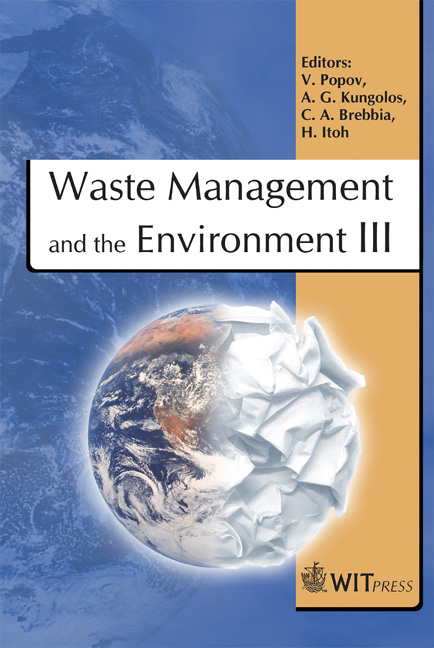Waste Incineration In Swedish Municipal Energy Systems
Price
Free (open access)
Transaction
Volume
92
Pages
10
Published
2006
Size
368 kb
Paper DOI
10.2495/WM060261
Copyright
WIT Press
Author(s)
K. Holmgren
Abstract
Waste is widely used as a fuel in the Swedish district heating (DH) systems, thereby linking waste management and the energy system. This paper summarizes earlier studies by the author on the role of waste as a fuel in DH systems. The method used is case studies of three Swedish municipalities that utilise waste in their DH systems. Economic optimisations of the DH systems are made using the linear programming model MODEST, and environmental effects in terms of carbon dioxide emissions are assessed. It is economically advantageous to use waste as a fuel due to regulations in the waste management sector and high taxes on fossil fuels. There can be a conflict between combined heat and power (CHP) production in DH systems and waste incineration, since the latter can remove the heat sink for other CHP plants in combination with low electrical efficiency in waste incineration plants. CHP is the main measure to decrease carbon dioxide emissions in DH systems on the assumption that locally produced electricity replaces electricity in coal condensing plants. It can be difficult to design policy instruments for waste incineration due to conflicting goals for waste management and energy systems. To put costs on environmental effects, so called external costs, is one way to include them but the method has drawbacks, for example the limited range of environmental effects included. Comparing the energy efficiency of material recovery and energy recovery from waste incineration is one way to assess the resource efficiency of the waste treatment methods. Keywords: district heating, energy recovery, combined heat and power, material recovery, waste incineration, modelling, policy instruments, waste management.
Keywords
district heating, energy recovery, combined heat and power, material recovery, waste incineration, modelling, policy instruments, waste management.





